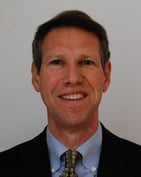Since there was very little time between “rehearsal” and going live with remote working and virtual meetings, now is a good time for a mid-course pause. Take a moment for some self-reflection:
- What is working well with your current virtual meetings and email protocols?
- What needs to work better?
- Ask your team members for candid feedback on what’s working well or needs to work better
Here are some ideas for a deeper dive:
Virtual Meetings
- Think about who is attending your various virtual meetings. Do you have the right mix of attendees? Do you have the right number of people in the meetings — are the meetings too long/too short?
- When are the meetings scheduled? Are you considering the various time zones people work in? Are you considering the impact meeting times are having on family/home/personal commitments?
- Are you utilizing good meeting practices? Are there pre-meeting agendas/goals? Can participants contribute agenda items? Are they? Do meetings end on time and with concrete next steps? Are meeting notes distributed?
- Meeting virtually puts additional pressure on your facilitation skills. Do you have the right balance of your talking vs. attendee participating? Are you paying attention to who is getting airtime and who asks questions? Are you inviting “quiet people“ to add their thoughts? Do people really feel they can contribute and that it’s safe to raise difficult issues/problems?
- Given today’s stressful environment, are you building in time to check in on team members emotional health? Have you appropriately acknowledged and thanked people for their ability to continue to work effectively during these very difficult times? Are you communicating your personal concern for them?
- Have non-work virtual meet-ups been scheduled — group coffees, happy hours, water-cooler time?
- To really measure the effectiveness of your virtual meeting, ask direct reports for candid feedback.
Emails
- How manageable is the current email traffic? Are people respecting non-work time?
- What is the tone of the emails you are sending? How helpful is your boss’s email tone? How about the tone of your direct report’s emails? Is the sense of urgency appropriate for the current environment?
- Are expectations clear about email response time?
- Are people following proper email etiquette?
- Are people over-using cc: and/or reply all?
- Are people using email as a substitute for direct phone/video conversations?
- If people are feeling overwhelmed by their inbox volume and outside pressures do they feel safe raising their hand and asking for relief/help?
Leading remotely is different than “normal” leadership. Physical distance creates a psychological distance. This requires greater self-awareness and additional attention to your soft skills. Showing empathy, listening aggressively, acting with compassion, delivering on commitments and celebrating successes and effort have heightened significance when people are feeling vulnerable and scared while juggling their life and their work priorities. It’s time to be kind to each other!
 Gary Schuman, Ph.D.
Gary Schuman, Ph.D.
For over 20 years Gary Schuman’s primary work has been in the areas of culture change, executive leadership, team building, facilitation, process improvement, and strategic planning. He has worked in a wide variety of large and closely held companies such as: Apple, BBC America, Bloomberg LLC, Chartbeat, Fidelity Investments, Marriott, McKinsey, NBC Universal, Paramount Pictures, Simon and Schuster, Sundance Channel, Viacom, West Elm and Zumba Fitness. Gary has worked extensively with Senior Executives in helping them build effective leadership teams. Gary’s approach is low on theory and high on action. His objective is to provide practical, hands-on solutions that make an immediate difference in the way senior leaders, their teams, and direct reports perform.



